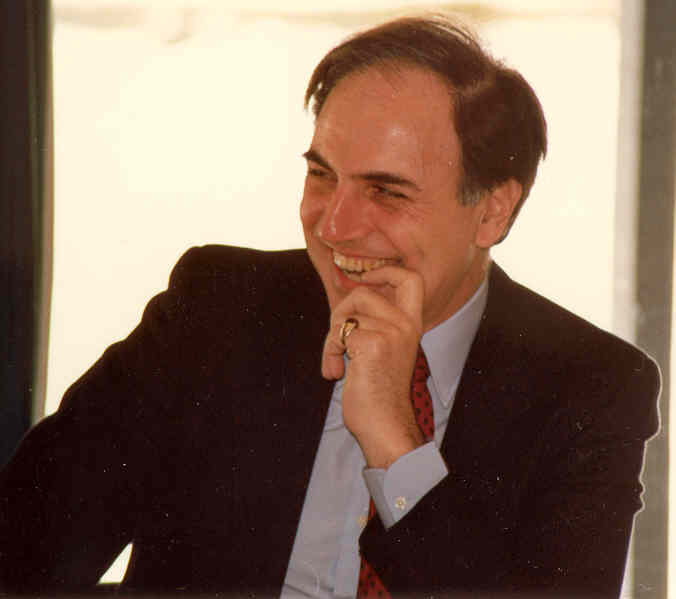The Jewish Humanist, March 1995
I am a Detroiter and so are 4 million other people in this metropolitan area. We may live in Birmingham, Farmington Hills or west Bloomfield. But, in the eyes of the world outside, we are still Detroiters.
Some of us are the traders by choice. We have thought seriously about other places to live. But we have come to the conclusion that the Detroit area is the best of all possible options for us.
Others are Detroiters by fate. They would much prefer to be someplace else. They are here only because they have to be. They feel condemned by destiny. When they have to reveal it to others that they are the traders, they make their announcement defensively and apologetically. They have difficulty understanding why anybody would freely choose to live in the Detroit area. In their eyes Detroit is the “pits”.
“Fate-Detroiters” have a long list of complaints. The inner city is a devastation. There is no functioning downtown. Crime is rampant. Culture is thin. Young people are fleeing. The population is shrinking and aging. The scenery is boring. The climate stinks. The race war is relentless. There’s no place to go – except to Chicago or Toronto.
Some of these complaints are valid. Most of these complaints are not.
Certainly, there is crime, poverty, racial tension, urban devastation in the absence of a central downtown. But some of the changes are positive. Suburban housing is bigger and more commodious then the old urban variety. Detroit now spends three counties; most of that area future is comfortable and safe neighborhoods. Shopping centers, with greater variety and options in the old downtown, have become new settings for pedestrian traffic, community interchange and entertainment. The automobile makes educational and recreational opportunities available that the old public transit never provided. There is more opera, classical music, theater and dance than most “sophisticated” citizens choose to or are able to take advantage of. The metropolitan area features the diverse environments of Ann Arbor, Northville, Royal Oak and Birmingham. The Great Lakes may not be as magnificent as the Rockies, but they are clearly not ordinary. The suburbanization Of America has its disadvantages; but it has its advantages to. And the old urban density was never as wonderful and romantic as we know imagine. If it was we would have created its duplicate in suburbia.
I am a Detroiter by choice. Even though I was born and raised in Detroit, there were other urban options available to me when I graduate high school. It would have been easier to organize Humanistic Judaism and bigger more Jewish cities like New York and Los Angeles.
I chose Detroit because Detroit is my home. The streets are filled with childhood memories. The setting is filled with family and friends. Human relations our capital investments in life. They take much time, energy and personal devotion. Then I chose Detroit because Detroit is my home. The streets are filled with childhood memories. The setting is filled with family and friends. Human relations are capital investments in life. They take much time, energy and personal devotion. They engender profound attachments and commitments which are not easy to give up.
Neither weather north theater lights are more important to me and my human connections. I see too many people who abandon their human environment for physical environment they think it’s more comfortable. in my cases separation is less desirable than they initially imagined. I think that, in my old age, I will still choose the February ice of Detroit to the desert warmth of Scottsdale or San Diego.
I chose Detroit because I think that Michigan is beautiful. The magnificence of the Detroit River fills me with all. Adam is Oakland county has much of the splendor of New England. Fort Melbourne and the Bluewater Bridge provide me with inspiring with Easters. I like flat terrains. They do not hide the sky nor dwarf human beings and human creations. They give me my dignity.
I chose Detroit because it is mid-western. I like the culture of the Midwest, its speech, its openness, its hospitality. I find the east and west less rooted in more pretentious. I find the south less welcoming, warm and speech, cold and its acceptance of strangers. The Midwest is a wonderful combination of New England Yankees, Pennsylvania Quakers and generations of immigrants who shaped at this founding culture. When I am in the Midwest I sometimes weary of its matter-of-fastness. But I always look forward to coming back to it.
I chose Detroit because I am a workaholic. I did not want an environment so comfortable and so seductive that I would be drawn to leisure activities I find less meaningful. Cold and rainy days are good for work. A less than exiting outdoors makes things indoors all the more wonderful. Eternal sunshine discourage is the kind of human effort that makes life interesting. I do not dream of comfortable places for retirement. My mind is always inventing new projects. I’m not sure that I chose Detroit because I am a workaholic. I did not want an environment so comfortable and so seductive that I would be drawn to leisure activities I find less meaningful. Cold and rainy days are good for work. A less than exiting outdoors makes things indoors all the more wonderful. Eternal sunshine discourages the kind of human effort that makes life interesting. I do not dream of comfortable places for retirement. My mind is always inventing new projects. I’m not sure that longboat key supports that lifestyle. Long Boat Key supports that lifestyle.
Each of these reasons by itself might find another place for its satisfaction. But in combination, they make Detroit in my city. I do not know for sure whether in the infirmities of my final years, I will surrender and find a refuge in some overcrowded tropical paradise, I hope not.

